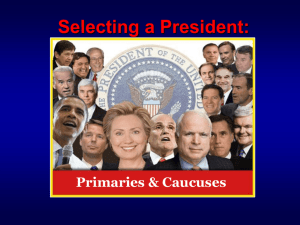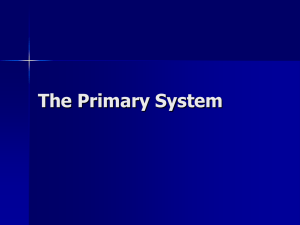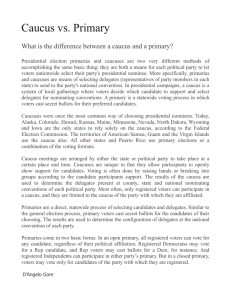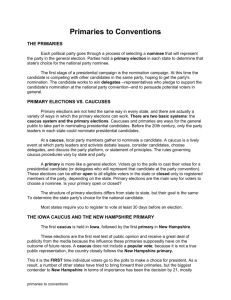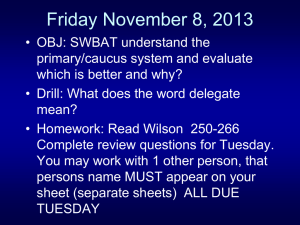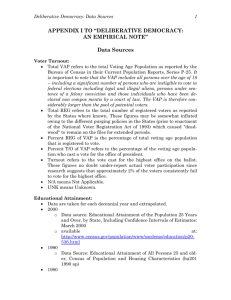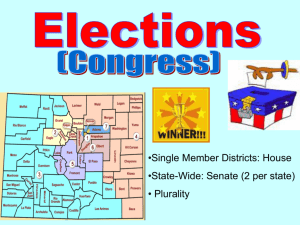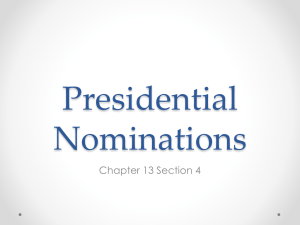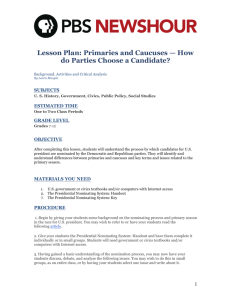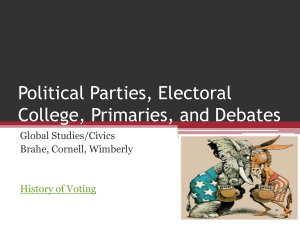Primaries and Caucuses: How do the parties choose a
advertisement
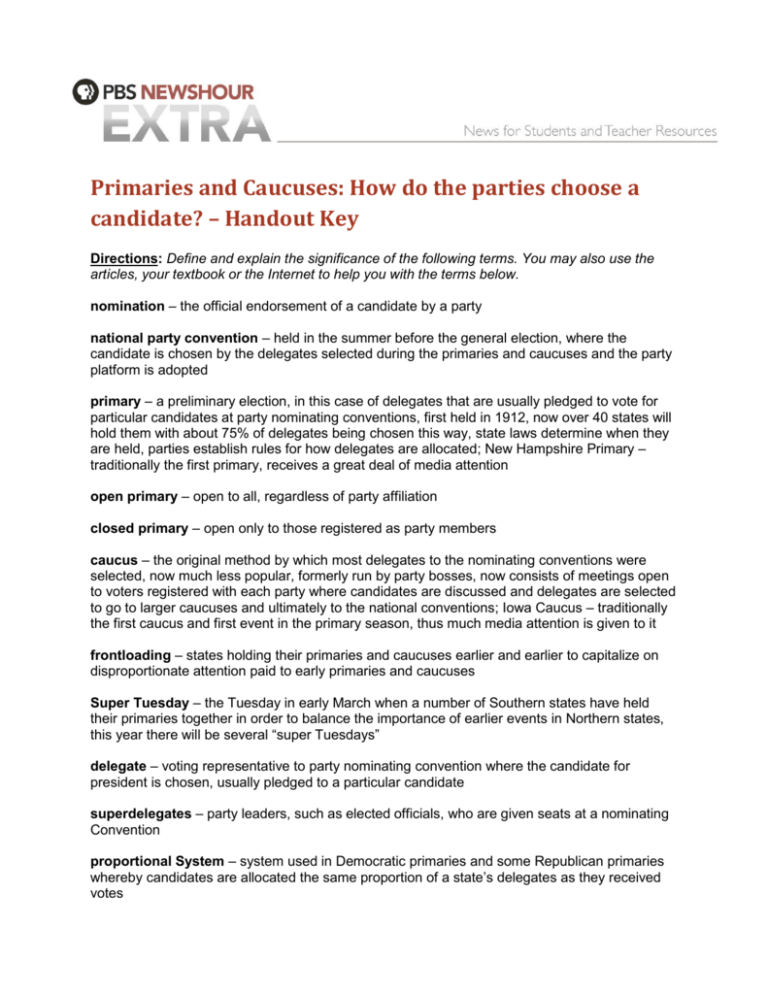
Primaries and Caucuses: How do the parties choose a candidate? – Handout Key Directions: Define and explain the significance of the following terms. You may also use the articles, your textbook or the Internet to help you with the terms below. nomination – the official endorsement of a candidate by a party national party convention – held in the summer before the general election, where the candidate is chosen by the delegates selected during the primaries and caucuses and the party platform is adopted primary – a preliminary election, in this case of delegates that are usually pledged to vote for particular candidates at party nominating conventions, first held in 1912, now over 40 states will hold them with about 75% of delegates being chosen this way, state laws determine when they are held, parties establish rules for how delegates are allocated; New Hampshire Primary – traditionally the first primary, receives a great deal of media attention open primary – open to all, regardless of party affiliation closed primary – open only to those registered as party members caucus – the original method by which most delegates to the nominating conventions were selected, now much less popular, formerly run by party bosses, now consists of meetings open to voters registered with each party where candidates are discussed and delegates are selected to go to larger caucuses and ultimately to the national conventions; Iowa Caucus – traditionally the first caucus and first event in the primary season, thus much media attention is given to it frontloading – states holding their primaries and caucuses earlier and earlier to capitalize on disproportionate attention paid to early primaries and caucuses Super Tuesday – the Tuesday in early March when a number of Southern states have held their primaries together in order to balance the importance of earlier events in Northern states, this year there will be several “super Tuesdays” delegate – voting representative to party nominating convention where the candidate for president is chosen, usually pledged to a particular candidate superdelegates – party leaders, such as elected officials, who are given seats at a nominating Convention proportional System – system used in Democratic primaries and some Republican primaries whereby candidates are allocated the same proportion of a state’s delegates as they received votes winner-take-all System – system used in some Republican primaries whereby the candidate to receive the most votes in a state receives all of that state’s delegate Directions: Look at the 2016 schedule of primaries and answer the following questions about it. When does the primary season begin and end? It begins on Feb. 1, 2016, and ends on June 14, 2016. Which events are expected first for both parties? Iowa caucus and the New Hampshire primary, Feb. 1, Feb. 9, respectively. Are there groups of states that hold their primaries on the same days? Explain. Yes, there are several groups of states that hold primaries on the same days. The largest of these is “Super Tuesday‟ on March 1, when 13 states will hold primaries or caucuses. Are all states having a primary or caucus for both parties? Explain. Yes, all states will have a primary for both parties so they may send delegates to the party’s national conventions. When is your state holding its primaries or caucuses? See the schedule here. Why does the schedule sometimes differ from one presidential primary season to another? One of the main reasons is that states have moved their primaries up in an attempt to frontload a specific candidate, and “Super Tuesday” has fewer participating states than in the past. What traditionally happens during the nominating process for a party that has a sitting president up for re-election? The incumbent is usually easily re-nominated, often by 100% of the convention delegates. Explain the nomination process in your state. Students may consult their state websites or other materials provided by state election officials. Does your state hold primaries or caucuses or both? How are delegates to the national conventions allocated in your state? Is there anything unique about the process in your state? Answers will vary.

